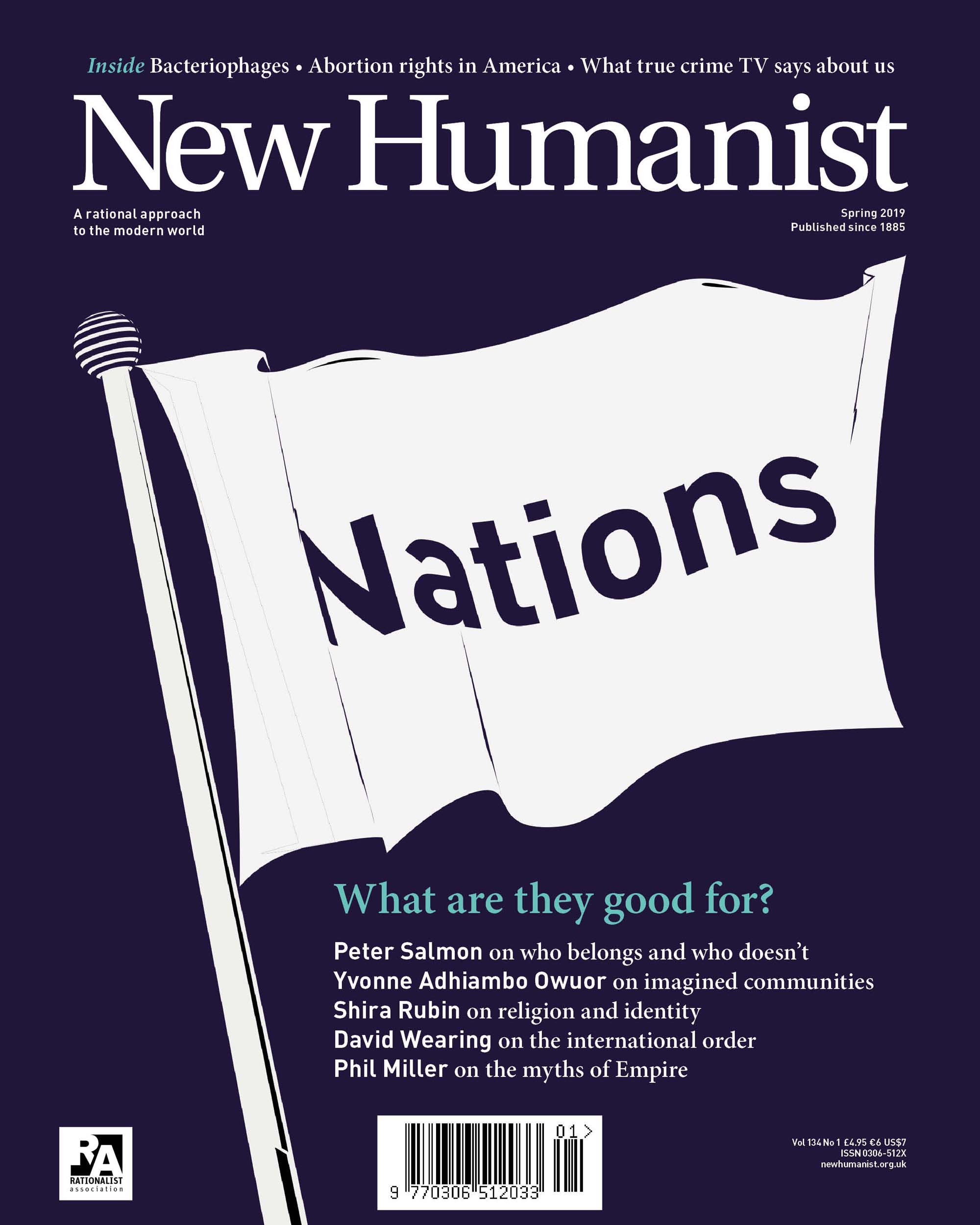
The spring 2019 issue of New Humanist is on sale now! Subscribe here for just £27 a year
Nations - what are they good for?
The shock of the old
Does the resurgence of nationalism in politics herald an unwelcome return to the past? Peter Salmon explores.
For many of us, the shock lies not simply in the way nationalism has reappeared – its “death” having been, in many ways, a cornerstone of the liberal notion of “progress” – but in the virulence of its discourse, and the polarising effect it has had on culture. Complexity itself seems under threat, which is precisely why there’s an urgent need to unpack and explore the terms of the debate.
New battles in an ancient city
How a mix of secular nationalists and religious zealots have turned Jerusalem’s Temple Mount into a site of conflict. Shira Rubin reports.
Although the status of Temple Mount is emotive, it remained for decades a fringe issue in Israeli politics. Today, activists once seen as extremists form part of the government, and as failed political negotiations over the conflict have deepened a sense that peace is impossible, radicalisation has blossomed.
It takes two
International institutions through which states are meant to solve disagreements seem in worse shape than ever. David Wearing asks: who is to blame?
A simplistic binary narrative setting “the West” against “Putin’s Russia”, with all its not-so-subtle implications about the inherent nature of either side, obscures the reasons why modern Russia came to be the way it is and, crucially, the Western powers’ own complicity in that process.
Heavy medals
National stories involve forgetting, as much as they do remembering, writes Phil Miller – just look at the way Britain’s colonial history is treated
Of course, storytelling is not as simple as it sounds. Should we view individual heroism differently when it occurred in the context of an imperial project as opposed to, say, a war against fascism?
The Q&A: Yvonne Adhiambo Owuor
JP O'Malley interviews the prize-winning Kenyan novelist about language, fiction and Kenya's recent history of violence.
The problem stems more from the idea of nation, or the idea associated with the question: what is Kenya? I don’t think in Kenya we have ever taken the time to ask: what does it mean to be human, or what does it mean for us to belong in Kenya? And that, I believe, is part of our eternal restlessness as a nation.
The spring 2019 issue of New Humanist is on sale now! Subscribe here for just £27 a year.

Also in this issue:
-
Peter Forbes on a new front in the war on antibiotic resistance
-
Nostalgia is a powerful political tool. Samira Ahmed argues we should find positive ways to use it
-
Will conservatives on the US Supreme Court roll back abortion rights? Richard Scorer investigates
-
Rhian E Jones on why we should be commemorating Peterloo, 200 years on
-
Are wearable health apps there for our benefit, or for that of the insurance industry? Giovanni Tiso explores
-
Henrik Schoeneberg on artificial intelligence in the year of Blade Runner
-
What's wrong with the craze for true crime? Caroline Crampton on a troubling trend
-
Yo Zushi on Elvis, stardom and the myth of the rock god
-
Our brains are smaller than they used to be, but it's nothing to worry about, writes Marcus Chown
-
Sally Feldman on Rational Dress and the long, uncomfortable journey for women to win the freedom to choose what they wear
-
PLUS: a new, expanded book review section, featuring Owen Hatherley on the future of the left, Niki Seth-Smith on Nigeria's queer women, and more.
-
Columns from Michael Rosen and Laurie Taylor; the latest developments in biology, chemistry and physics; cryptic crossword and Chris Maslanka's quiz
New Humanist is published four times a year by the Rationalist Association, a 134 year-old charity promoting reason, science and secularism. Our journalism is fiercely independent and supported entirely by our readers. To make a deeper commitment, why not donate to the Rationalist Association?

